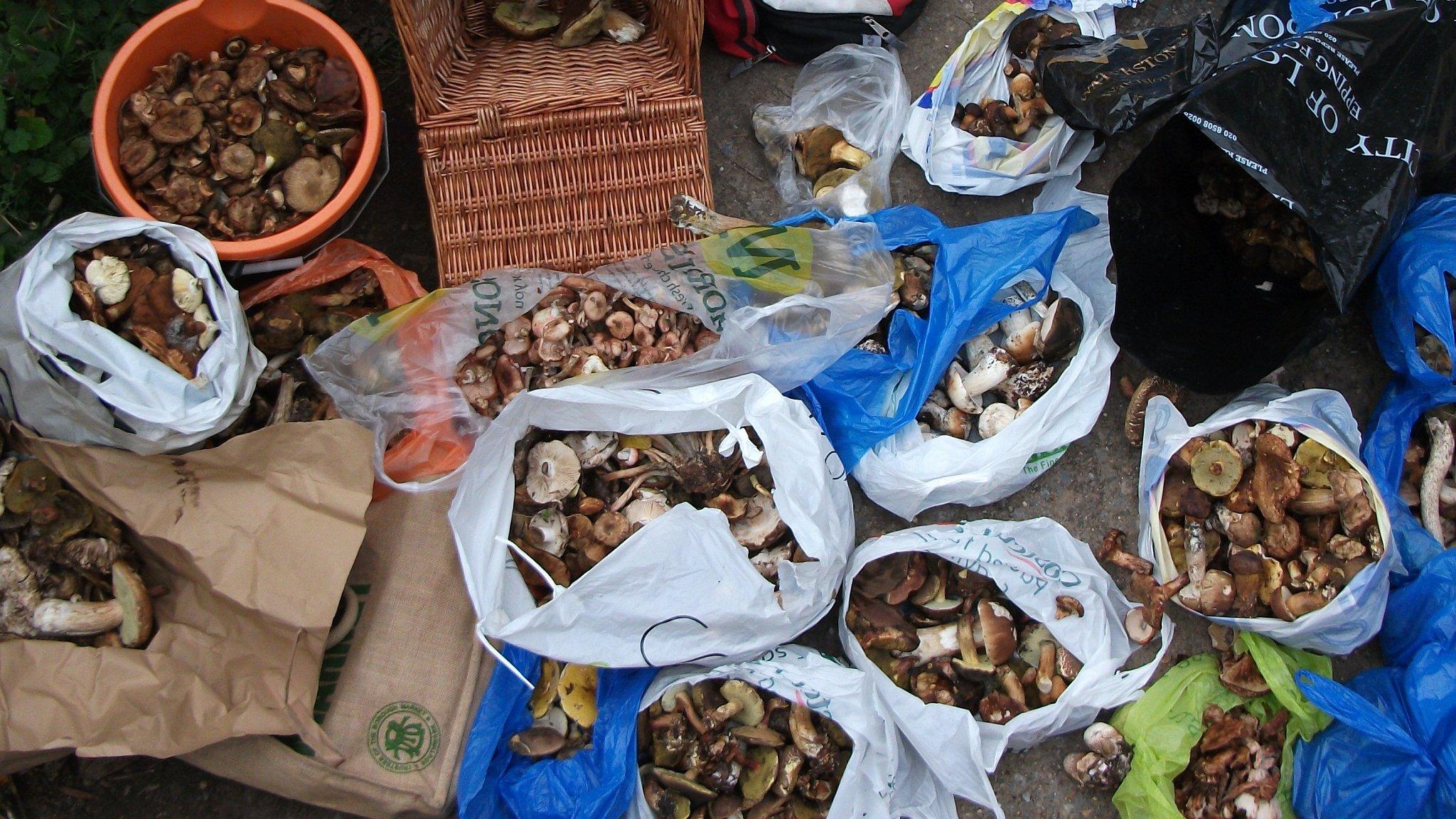Forager prepares for three-month wild food diet
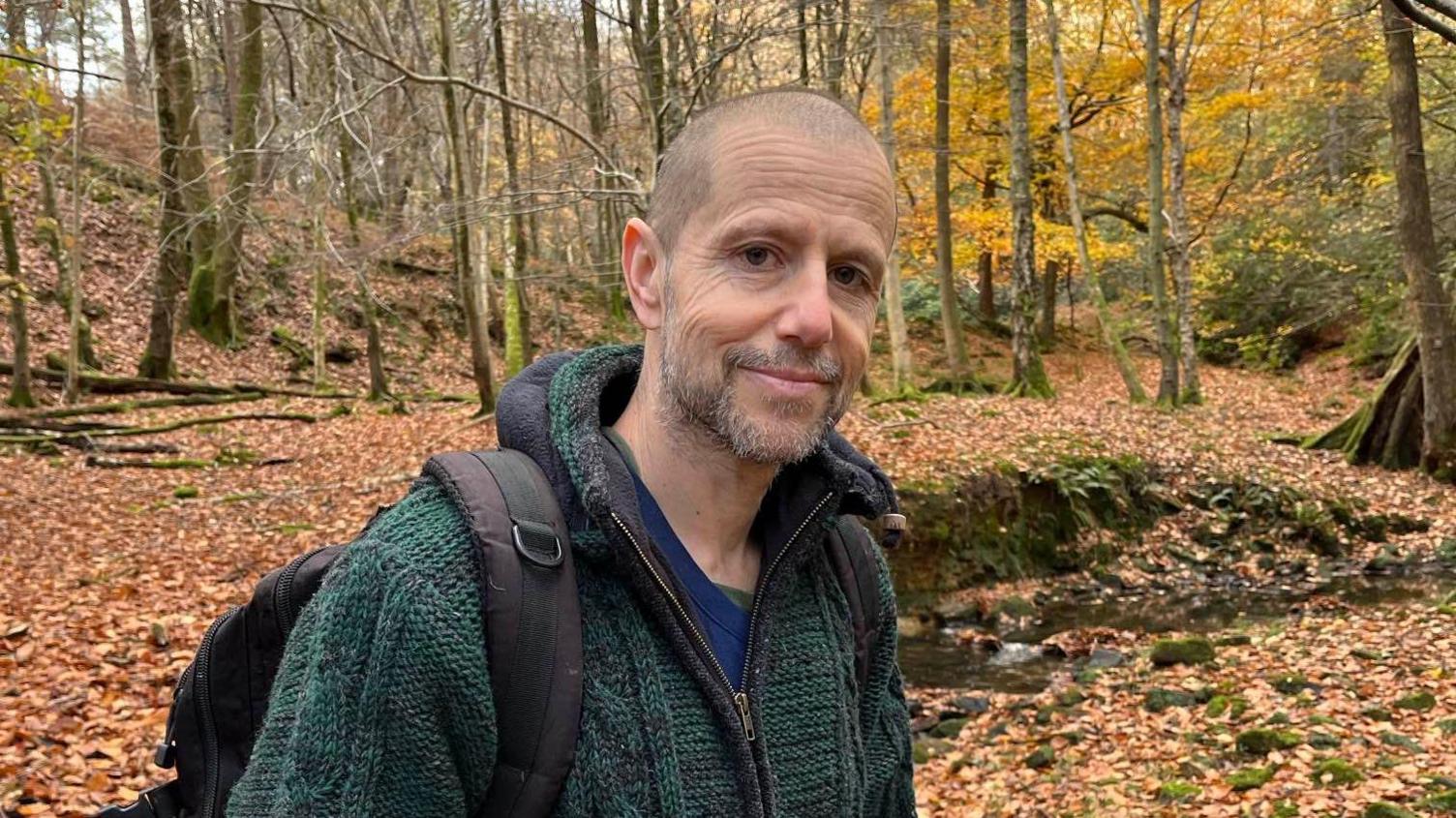
Fergus Drennan is gathering wild food from across the South East ahead of taking part in The Wildbiome 2 Project
- Published
A forager from Kent is gathering supplies at locations across the South East in preparation for living on a wild food diet for three months.
Fergus Drennan, originally from Herne Bay, is taking part in The Wildbiome Project 2, external which begins in April, a science experiment that will see 26 participants consume only food foraged from the land.
The aim is to conduct research into how processed and unprocessed foods affect gut microbiomes, diabetes and body mass index (BMI).
Mr Drennan, known as 'Fergus the forager', has been busy collecting acorns, fungi and roadkill such as pheasant, deer and squirrel for the project.
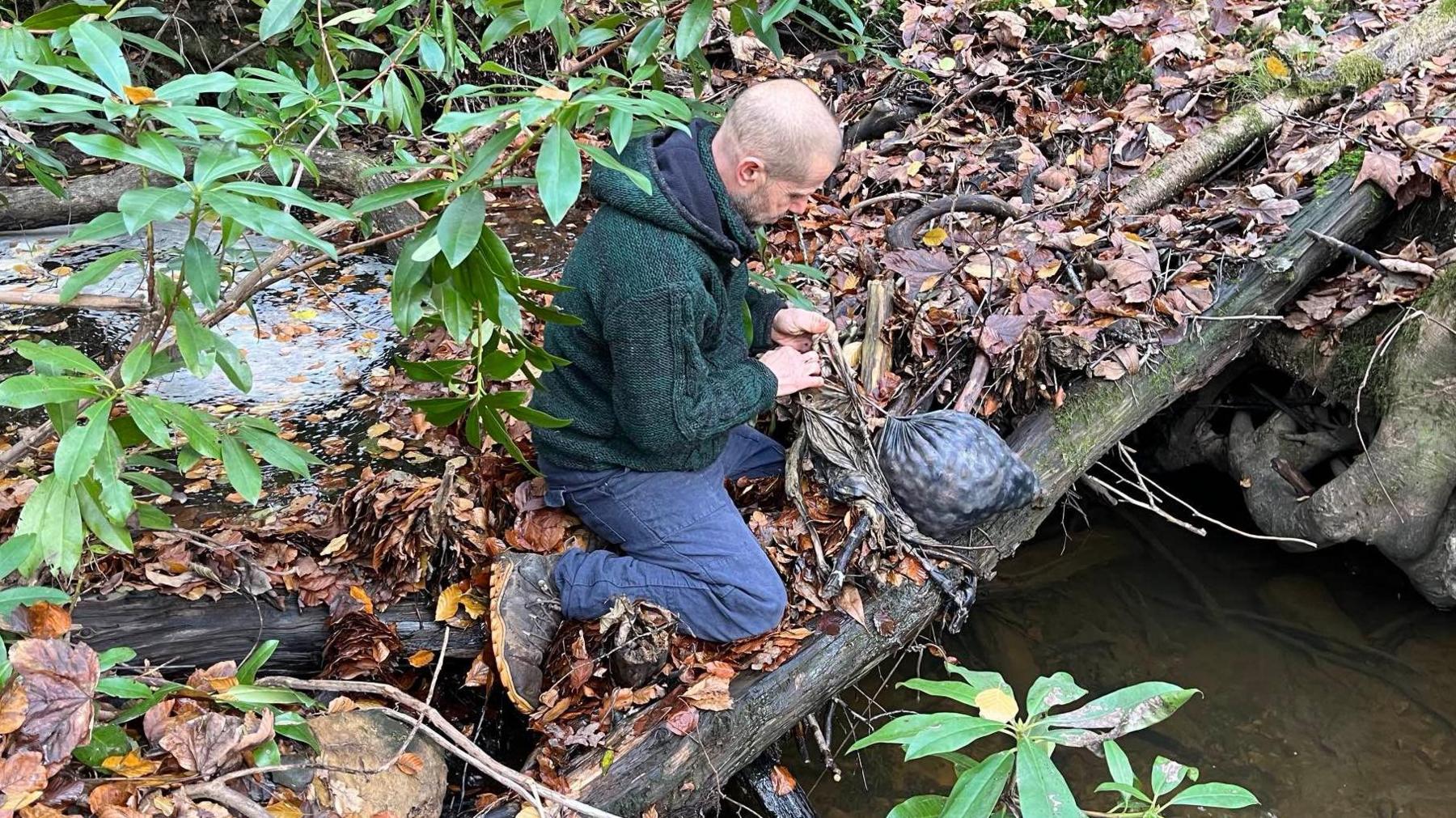
Acorns are a large part of the forager's diet but need the tannins leached out by fresh water before they are palatable
Humans have been eating acorns in Europe for over 12,000 years and Mr Drennan, who runs foraging courses for the public, said he was keen to re-introduce the flexible food source to our diets.
"They are a wonderful source of carbohydrates and starch. You can make flour with them and from there cakes, pancakes and biscuits," he said.
"They can also be added whole to stews and casseroles to really fill you up."
The acorns he recently collected from oak trees at the University of Kent in Canterbury cannot be eaten straight away as they are high in tannins that leave a bitter taste.
For this reason, he is in the process of leaching them out using the fresh water in a nearby stream and in the toilet cistern at his home, a process that takes around six weeks.
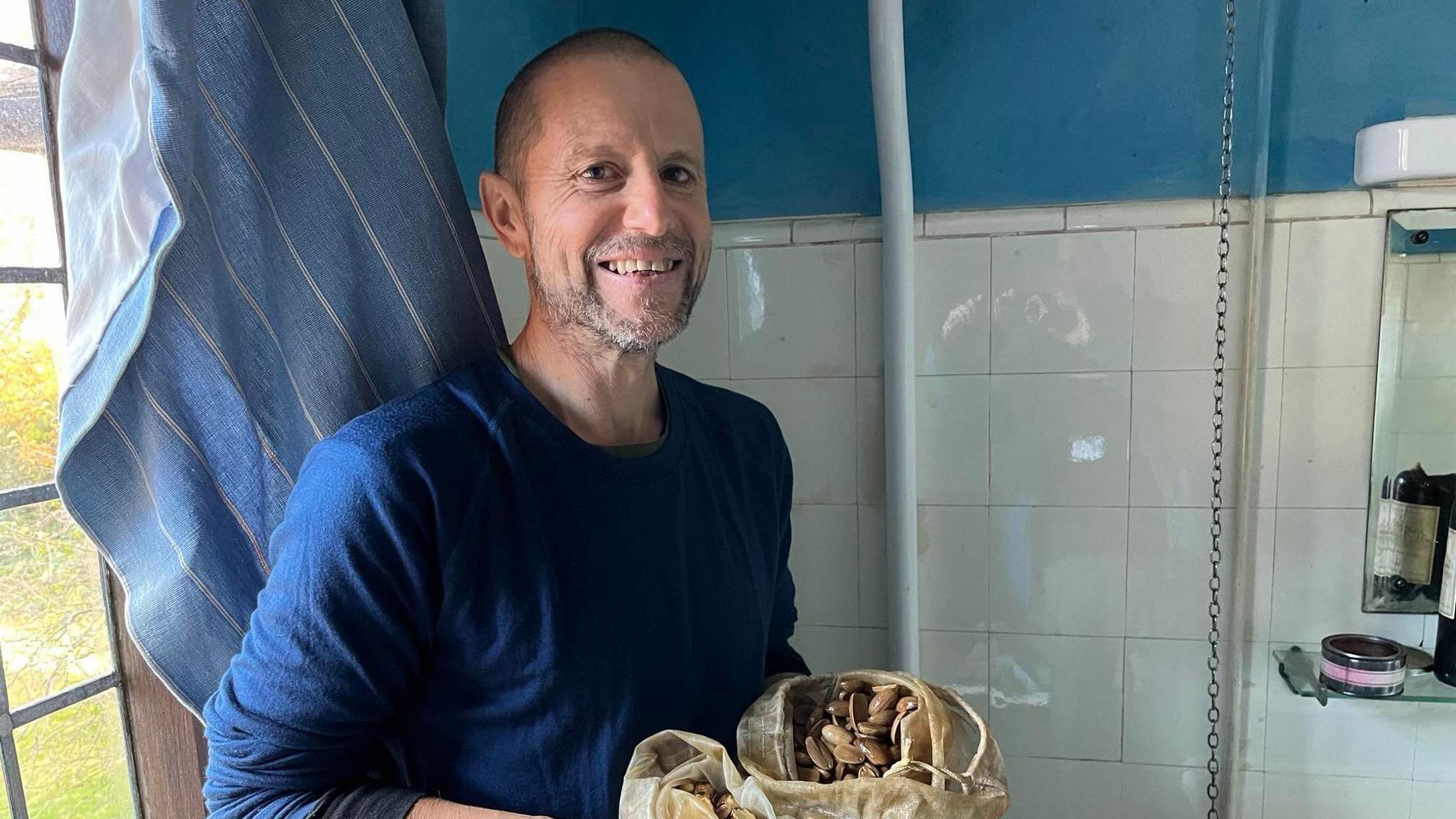
Fergus the Forager uses a local stream and the toilet cistern at home to wash the tannins out of his bumper acorn crop
Foraging is not illegal if the landowner's permission is granted and Mr Drennan said that roadkill was also fair game.
"As long as you haven't used your vehicle to run over the animal and it's safe to retrieve, you can take it away to eat," he said.
Would-be roadkill chefs are urged, however, to use creatures that are fresh and have not been decomposing - and if there are any concerns it is best to see expert advice.
Mr Drennan, who lives in the Ashdown Forest in East Sussex and has been foraging for more than two decades, previously made a television programme, The Roadkill Chef.
The Wildbiome Project 2 is a follow-up to the 2023 experiment by foraging teacher Mo Wilde, who lived for a year solely from free, wild food found in central Scotland.
Gut biome tests showed that it returned her to a healthy BMI while another participant, Matthew Rooney, regained pre-diabetic blood status after nine weeks.
Follow BBC Kent on Facebook, external, on X, external, and on Instagram, external. Send your story ideas to southeasttoday@bbc.co.uk, external or WhatsApp us on 08081 002250.
Related topics
More stories like this
- Published31 August 2019
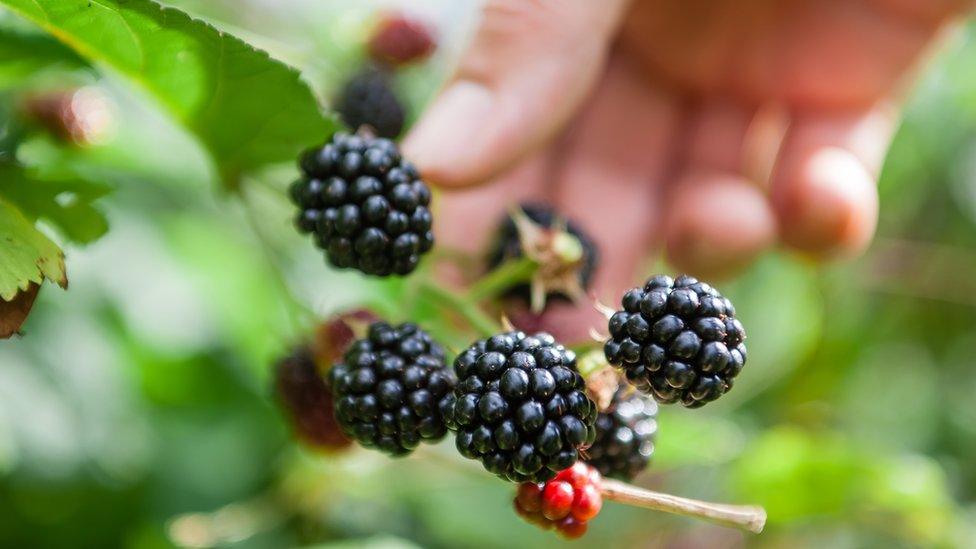
- Published27 October 2024
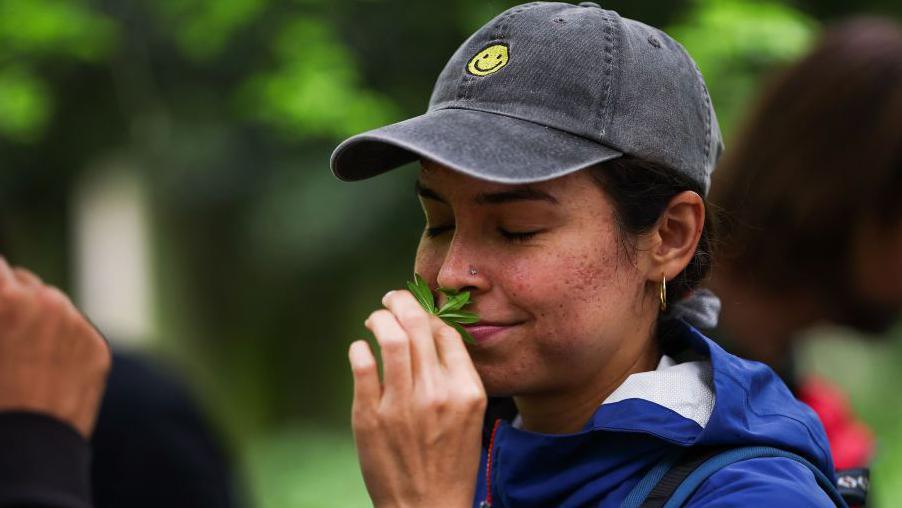
- Published17 September 2024
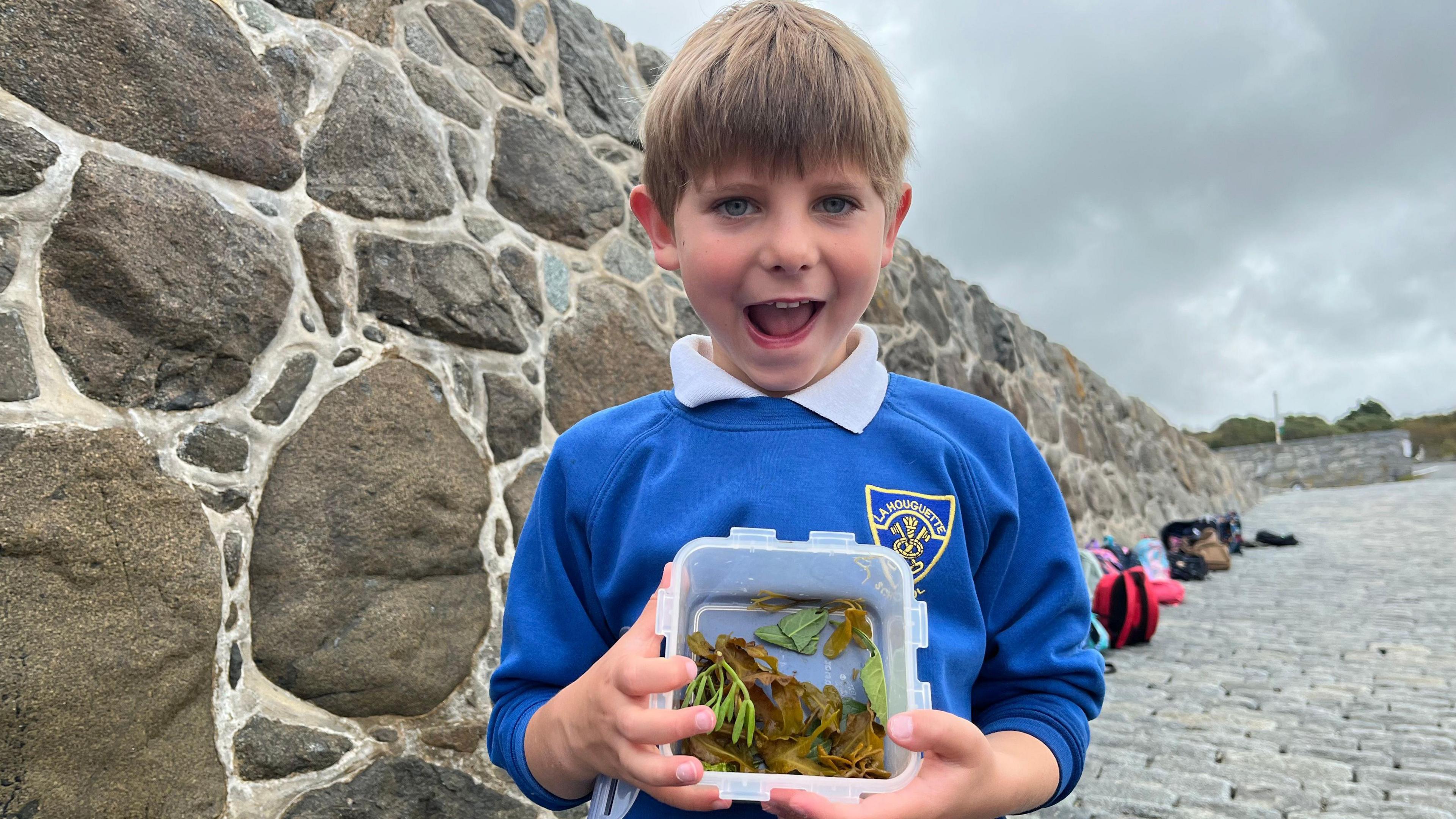
- Published31 October 2023
